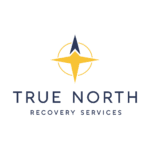Co-occurring disorders, also known as dual diagnoses, occur when an individual suffers from both a mental health condition and a substance use disorder (SUD) simultaneously. The connection between addiction and mental health is intricate and often overlooked. People with co-occurring disorders face unique challenges, making it essential to understand the relationship between these conditions and how they can affect one another.
In this blog, we’ll delve deep into co-occurring disorders, exploring how addiction and mental health issues intersect, the signs and symptoms, treatment approaches, and how we can help individuals with these complex conditions.
What Are Co-Occurring Disorders?
Co-occurring disorders refer to the coexistence of a mental health condition, such as depression, anxiety, or bipolar disorder, and a substance use disorder. These conditions often amplify each other, making it difficult for individuals to manage either problem on its own. This dual diagnosis requires an integrated treatment plan that addresses both issues simultaneously.
LSI keywords: dual diagnosis, mental health and substance use disorder, addiction and mental health connection, addiction recovery, co-occurring disorders treatment
The Prevalence of Co-Occurring Disorders
According to the National Institute on Drug Abuse (NIDA), about 7.7 million adults in the United States experience co-occurring mental health and substance use disorders. The relationship between mental health issues and addiction is bidirectional. For example:
- People with mental health issues may turn to substances to self-medicate, temporarily alleviating symptoms of their condition.
- On the flip side, prolonged substance abuse can contribute to the development or exacerbation of mental health disorders.
How Addiction and Mental Health Issues Intersect
When a person is struggling with both addiction and a mental health disorder, the challenges of recovery become more complex. Substance use can mask or intensify the symptoms of a mental health condition, making diagnosis and treatment difficult.
Mental Health and Self-Medication
One of the primary ways addiction and mental health issues intersect is through self-medication. Many individuals dealing with depression, anxiety, PTSD, or bipolar disorder might turn to alcohol or drugs in an attempt to manage their symptoms. Unfortunately, self-medicating usually leads to dependence and worsens the mental health condition in the long term.
For example:
- Depression and Alcohol: People with depression often turn to alcohol to temporarily numb emotional pain. However, alcohol is a depressant and can exacerbate feelings of sadness and isolation.
- Anxiety and Benzodiazepines: Individuals with anxiety disorders may misuse prescription drugs like benzodiazepines to feel calmer. This can lead to dependence, making it harder to function without the drug.
The Impact of Substance Abuse on Mental Health
Substance abuse doesn’t just mask mental health symptoms—it can actively worsen them. Prolonged use of drugs and alcohol can:
- Increase feelings of anxiety or paranoia.
- Lead to mood swings or depression.
- Trigger hallucinations or delusions, especially in cases of stimulant abuse (e.g., methamphetamine or cocaine).
For instance, long-term use of stimulants can trigger psychosis, resembling symptoms of schizophrenia. Similarly, heavy alcohol use can exacerbate depressive symptoms, leading to increased suicidal ideation.
Signs and Symptoms of Co-Occurring Disorders
Recognizing co-occurring disorders can be challenging, as the symptoms of addiction and mental health issues often overlap. However, some common signs include:
Mental Health Symptoms
- Depression: Persistent sadness, fatigue, loss of interest in activities, feelings of hopelessness.
- Anxiety: Constant worry, panic attacks, difficulty relaxing, trouble sleeping.
- Bipolar Disorder: Extreme mood swings, including manic episodes of high energy and depressive episodes of low mood.
- PTSD: Flashbacks, nightmares, avoidance of triggers, hypervigilance.
Addiction Symptoms
- Substance Dependence: The inability to stop using alcohol or drugs despite negative consequences.
- Cravings: Intense urges to use the substance.
- Tolerance: Needing more of the substance to achieve the same effects.
- Withdrawal: Physical or emotional symptoms when not using the substance (e.g., shaking, sweating, anxiety).
Why Treating Both Disorders is Crucial
Treating co-occurring disorders requires a comprehensive approach. Addressing one disorder without the other often leads to relapse, as untreated mental health issues can drive substance abuse, and vice versa. Integrated treatment models that combine mental health therapy with addiction recovery programs have proven to be the most effective.
The Importance of Integrated Care
An integrated treatment plan targets both disorders at the same time. This holistic approach allows individuals to address the root causes of their addiction and mental health issues rather than focusing on just one part of the problem. Key components of integrated care include:
- Behavioral Therapy: Cognitive-behavioral therapy (CBT) and dialectical behavior therapy (DBT) are particularly effective in helping individuals understand the connection between their thoughts, emotions, and behaviors.
- Medication Management: In some cases, medication may be necessary to manage symptoms of depression, anxiety, or bipolar disorder. Medications should be carefully prescribed to avoid interactions with any substances the person may be using.
- Group Therapy: Support groups for individuals with co-occurring disorders can offer a sense of community and accountability.
- Relapse Prevention: Teaching coping strategies and building resilience is crucial in maintaining long-term recovery.
LSI keywords: integrated care, behavioral therapy for co-occurring disorders, addiction recovery with mental health treatment.
How True North Recovery Services Helps with Co-Occurring Disorders
At True North Recovery Services, we specialize in treating individuals with co-occurring disorders. We understand that the relationship between mental health and addiction is complex, which is why we provide a range of services that target both aspects simultaneously. Our team of experienced professionals uses an integrated approach to ensure that all facets of a person’s well-being are addressed.
True North Recovery Services offers:
- Personalized Treatment Plans: Each individual receives a tailored treatment plan that considers their specific mental health needs and substance use history. Learn more about our treatment philosophy.
- Comprehensive Therapies: We utilize a combination of therapies, including CBT, DBT, and trauma-focused therapy, to help clients understand their mental health and addiction challenges. Read more about our therapy services.
- Medical Support: Medication-assisted treatment (MAT) is available for clients who need it as part of their recovery. Discover how we use MAT to aid recovery.
- Supportive Environment: Our compassionate staff and peer support groups create a safe and encouraging environment for recovery. Find out how we create a supportive treatment environment.
If you or someone you love is struggling with co-occurring disorders, True North Recovery Services is here to help. Visit our contact page to learn more about our comprehensive treatment programs and how we can guide you on the path to recovery.
Treatment Options for Co-Occurring Disorders
When it comes to treating co-occurring disorders, a multi-faceted approach is essential. Some of the most effective treatment options include:
1. Cognitive Behavioral Therapy (CBT)
CBT is one of the most commonly used therapies for treating both mental health disorders and addiction. It helps individuals identify negative thought patterns and behaviors and develop healthier ways of coping with stress, anxiety, and cravings.
2. Dialectical Behavior Therapy (DBT)
Originally developed for borderline personality disorder, DBT has been found to be effective in treating individuals with co-occurring disorders, particularly when emotional regulation is a major challenge.
3. Medication-Assisted Treatment (MAT)
For individuals dealing with opioid or alcohol addiction, MAT can be a game-changer. Medications like methadone, buprenorphine, and naltrexone can reduce cravings and withdrawal symptoms, making it easier to focus on mental health treatment.
4. Peer Support Groups
Group therapy and peer support groups, such as Alcoholics Anonymous (AA) or Narcotics Anonymous (NA), provide a sense of community and accountability. Many individuals with co-occurring disorders benefit from sharing their experiences and learning from others on a similar journey.
The Road to Recovery
Recovery from co-occurring disorders is not a one-size-fits-all journey. Each individual’s path will be unique, but the key is to seek treatment that addresses both the addiction and the underlying mental health condition. With the right support, it is possible to achieve long-term recovery and lead a fulfilling life.
Co-occurring disorders present significant challenges, but understanding how addiction and mental health issues intersect is the first step toward recovery. An integrated approach that addresses both conditions is essential for lasting recovery. True North Recovery Services is committed to providing comprehensive, compassionate care to those struggling with dual diagnoses, offering hope and a clear path forward.
If you or a loved one is dealing with a co-occurring disorder, don’t wait to get help. Reach out today to begin your journey toward healing.


